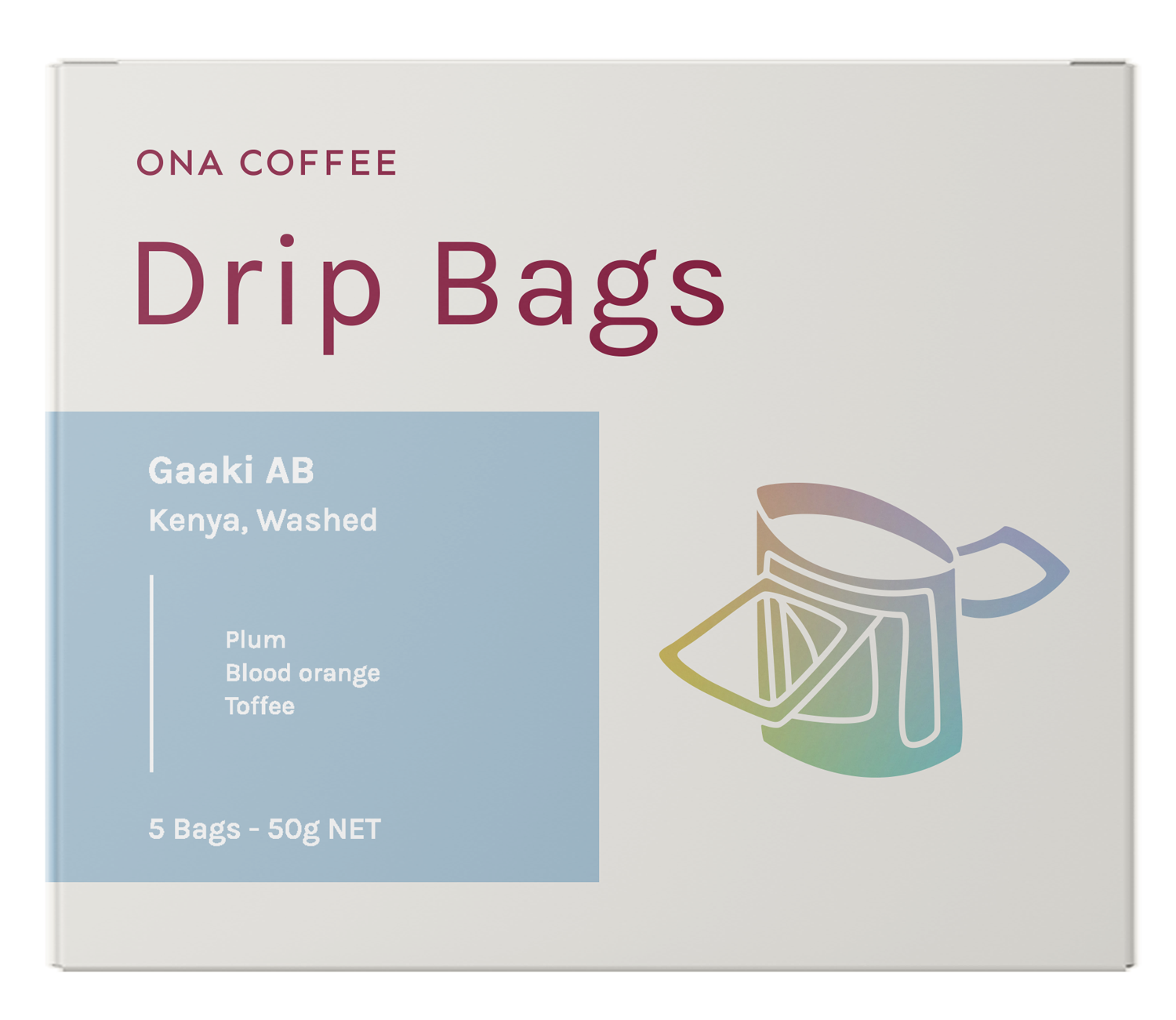

Filter Drip Bags - Gaaki AB, Kenya, Washed
- Regular price
- $16.00
- Sale price
- $16.00
- Regular price
-
- Unit price
- per
Plum, blood orange and toffee
5x10g bags and 10x10g bags
COFFEE PROFILE
This Washed, mixed SL lot is sweet and bright, with fresh plum, blood orange and sweet toffee notes across the palate.
| TASTES LIKE | Plum, blood orange and toffee |
| ROAST | Filter |
Story
The Gaaki Coffee Factory is located in Nyeri County, Kenya, at an altitude of approximately 1,750 meters above sea level. This high elevation, combined with the region's fertile volcanic soil and optimal climate, creates the ideal environment for cultivating high-quality coffee. Gaaki is part of the Othaya Farmers' Cooperative Society (FCS), a network of 18 wet mills established in the late 1950s to support smallholder farmers. Positioned southwest of Mount Kenya, the factory benefits from a climate with warm days and cool nights, which slow the maturation process and enhance the complexity of flavours.
The primary varieties grown and processed at Gaaki are SL28 and SL34, both renowned Kenyan cultivars celebrated for their exceptional cup quality. The factory employs a Washed (fully washed) processing method, which involves carefully hand-picking ripe cherries, pulping, fermentation, thorough washing, and sun-drying on raised beds. This meticulous process emphasises the bright acidity, fruity notes, and deep sweetness that characterise Kenyan coffees.
Coffee cultivation in Kenya experienced significant growth during the early 20th century under British colonial rule, leading to the formation of cooperatives like Othaya FCS. These cooperatives continue to offer essential resources, training, and structured marketing platforms for smallholder farmers.
| PRODUCER | Othaya Farmers' Cooperative Society |
| REGION | Nyeri County |
| VARIETAL | SL28 and SL34 |
| PROCESS | Washed |
| ALTITUDE | 1750 masl |

Origin
Nyeri County, Kenya
The Othaya Farmers' Cooperative Society (FCS), established in 1956, is a leading coffee cooperative in Kenya, supporting over 15,000 smallholder farmers across Nyeri County. It operates 18 wet mills, including the Gaaki Coffee Factory, and plays a key role in processing, marketing, and exporting high-quality coffee. Formed in the post-colonial era, Othaya FCS was created to help Kenyan coffee farmers gain independence and economic opportunities after British rule.
Coffee cultivation in Kenya began in 1893, and after independence in 1963, coffee farming was opened to smallholders, boosting cooperatives like Othaya FCS. Located in Nyeri, known for its high-altitude farms and ideal climate, Othaya produces top-quality coffees, especially SL28 and SL34 varieties. The cooperative is known for its focus on washed processing, sustainability, and farmer training. Today, it continues to support its members with modern facilities, competitive prices, and agronomic expertise, ensuring Kenyan coffee remains among the best in the world.
FAQs
No FAQ items found for this product.







